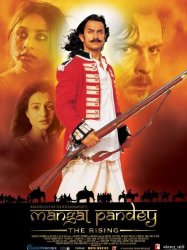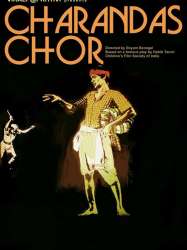Habib Tanvir is a Actor and Producer Indian born on 1 september 1923 at Raipur (Inde)

Habib Tanvir (1 September 1923 – 8 June 2009) was one of the most popular Indian Urdu, Hindi playwrights, a theatre director, poet and actor. He was the writer of plays such as, Agra Bazar (1954) and Charandas Chor (1975). A pioneer in Urdu, Hindi theatre, he was most known for his work with Chhattisgarhi tribals, at the Naya Theatre, a theatre company he founded in 1959 in Bhopal. He went on to include indigenous performance forms such as nacha, to create not only a new theatrical language, but also milestones such as Charandas Chor, Gaon ka Naam Sasural, Mor Naam Damad and Kamdeo ka Apna Basant Ritu ka Sapna.
For him true "theatre of the people" existed in the villages, which he strived to bring to the urban "educated", employing both folk performers as actors alongside urban actors. He died on 8 June 2009 at Bhopal after a three-week-long illness. Upon his death, he was the last of pioneering actor-managers in Indian theatre, which included Sisir Bhaduri, Utpal Dutt and Prithviraj Kapoor, and often he managed plays with a mammoth cast, such as Charandas Chor which included an orchestra of 72 people on stage and Agra Bazaar with 52 people.
During his lifetime he won several national and international awards, including the Sangeet Natak Akademi Award in 1969, Padma Shri in 1983, Kalidas Samman 1990, Sangeet Natak Akademi Fellowship in 1996, and the Padma Bhushan in 2002. Apart from that he had also been nominated to become a member of the Upper House of Indian Parliament, the Rajya Sabha (1972–1978). His play 'Charandas Chor' (Charandas, The Thief) won him the Fringe Firsts Award at Edinburgh International Drama Festival in 1982, and in 2007, it was included in the Hindustan Times' list of 'India's 60 Best works since Independence which said : "an innovative dramaturgy equally impelled by Brecht and folk idioms, Habib Tanvir seduces across language barriers in this his all-time biggest hit about a Robin Hood-style thief" as .
Born in Raipur, Chhattisgarh(erstwhile Madhya Pradesh) to Hafiz Ahmed Khan, who hailed from Peshawar.
He passed his matriculation from Laurie Municipal High School, Raipur, and later completed his B.A. from Morris College, Nagpur in 1944. Thereafter he studied M.A. for a year at Aligarh Muslim University.
Early in life, he started writing poetry using his pen name takhalluz. Soon after, he assumed his name, Habib Tanvir.
Career
In 1945, he moved to Bombay, and joined All India Radio (AIR) Bombay as a producer. While in Bombay, he wrote songs for Urdu, Hindi films and even acted in a few of them. He also joined the Progressive Writers' Association (PWA) and became an integral part of Indian People's Theatre Association (IPTA) as an actor. Later, when most of the prominent IPTA members were imprisoned for opposing the British rule, he was asked to take over the organisation.
In 1954, he moved to New Delhi, and worked with Qudsia Zaidi's Hindustani Theatre, and also worked with Children's theatre, where he authored many plays. Later in the same year, he produced his first significant play 'Agra Bazar' based on the works and times of the plebeian 18th-century Urdu poet, Nazir Akbarabadi, an older poet in the generation of Mirza Ghalib. For this play he brought together local residents and folk artistes from Okhla village in Delhi and students of Jamia Millia Islamia creating a palette never seen before in Indian theatre. Additionally, the play was not staged in a confined space, rather a bazaar, a marketplace. After this, he continued to work with non-trained actors and folk artistes like the folk artists of Chhattisgarh.
Stay in Europe
In 1955, when he was in his 30s, Habib moved to England. There, he trained in Acting at Royal Academy of Dramatic Arts (RADA) (1955) and in Direction at Bristol Old Vic Theatre School (1956). For the next two years, he travelled through Europe, watching various theatre activities. One of the highlights of this period, was his eight-month stay in Berlin in 1956, during which he got to see several plays of Bertolt Brecht, produced by Berliner Ensemble, just a few months after Brecht's death. This proved to have a lasting influence on him, as in the coming years, he started using local idioms in his plays, to express trans-cultural tales and ideologies. This, over the years, gave rise to a 'theatre of roots', which was marked by an utter simplicity in style, presentation and technique, yet remaining eloquent and powerfully experiential.
Return to India
A deeply inspired Habib returned to India in 1958 and took to directing full-time. He produced, 'Mitti ki Gaadi' a post-London play, based on Shudraka's Sanskrit work, Mrichakatika. It became his first important production in Chhattisgarhi. This was the result of the work he had been doing since his return – working with six folk actors from Chhattisgarh. He went on to found 'Naya Theatre,' a theatre company in 1959.
In his exploratory phase, i.e. 1970–73, he broke free from one more theatre restriction – he no longer made the folk artistes, who had been performing in all his plays, speak Hindi. Instead, the artistes switched to Chhattisgarhi, a local language they were more accustomed to. Later, he even started experimenting with 'Pandavani', a folk singing style from the region and temple rituals. This made his plays stand out amidst the gamut of plays which still employed traditional theatre techniques like blocking movements or fixing lights on paper. Spontaneity and improvisation became the hallmark of his new theatre style, where the folk artistes were allowed greater freedom of expression.
His next venture with Chhattisgarhi Nach style, saw another breakthrough in 1972, with a staging of the play titled 'Gaon Ka Naam Sasural, Mor Naam Damaad'. This was based on a comic folk tale, where an old man falls in love with a young woman, who eventually elopes with another young man.
By the time he produced his seminal play, 'Charandas Chor' in 1975, the technique became popular. This play immediately established a whole new idiom in modern India theatre; whose highlight was Nach – a chorus that provided commentary through song. Later, he collaborated with Shyam Benegal, when he adapted the play to a feature-length film, by the same name, starring Smita Patil and Lalu Ram. In 1980, he directed the play Moti Ram ka Satyagraha for Janam (Jan Natya Manch) on the request of Safdar Hashmi.
During his career, Habib has acted in over nine feature films, including Richard Attenborough's film, Gandhi (1982), 'Black and White' and in a yet-to-be-released film on the Bhopal gas tragedy.
His first brush with controversy came about in the 1990s, with his production of a traditional Chhattisgarhi play about religious hypocrisy, 'Ponga Pandit'. The play was based on a folk tale and had been created by Chhattisgarhi theatre artists in the 1930s. Though he had been producing it since the sixties, in the changed social climate after the Babri Masjid demolition, the play caused quiet an uproar amongst Hindu fundamentalists, especially the Rashtriya Swayamsewak Sangh (RSS), whose supporters disrupted many of its shows, and even emptied the auditoriums, yet he continued to show it all over.
His Chhatisgarhi folk troupe, surprised again, with his rendition of Asghar Wajahat's 'Jisne Lahore Nahin Dekhya' in 1992. Then in 1993 came, 'Kamdeo Ka Apna Basant Ritu Ka Sapna', Tanvir's Hindi adaptation of Shakespeare's "A Midsummer Night's Dream". In 1995, he was invited to the United States by the Chicago Actors Ensemble, where he wrote his only English language play, 'The Broken Bridge'. In 2002, he directed, 'Zahareeli Hawa', a translation of 'Bhopal' by the Canadian-Indian playwright Rahul Varma, based on the Bhopal Gas Tragedy. During his illustrious career he brought works from all genres to stage, from ancient Sanskrit works by Sudrak, Bhasa, Visakhadatta and Bhavabhuti; to European classics by Shakespeare, Molière and Goldoni; modern masters Brecht, Garcia, Lorca, Gorky, and Oscar Wilde; Tagore, Asghar Wajahat, Shankar Shesh, Safdar Hashmi, Rahul Varma, stories by Premchand, Stefan Zweig and Vijaydan Detha, apart from an array of Chhattisgarhi folk tales.
Source : Wikidata
Habib Tanvir

- Infos
- Photos
- Best films
- Family
- Characters
- Awards
Birth name Habib Ahmed Khan
Nationality Inde
Birth 1 september 1923 at Raipur (Inde)
Death 8 june 2009 (at 85 years) at Bhopal (Inde)
Awards Padma Shri, Padma Bhushan, Sangeet Natak Akademi Award
Nationality Inde
Birth 1 september 1923 at Raipur (Inde)
Death 8 june 2009 (at 85 years) at Bhopal (Inde)
Awards Padma Shri, Padma Bhushan, Sangeet Natak Akademi Award
For him true "theatre of the people" existed in the villages, which he strived to bring to the urban "educated", employing both folk performers as actors alongside urban actors. He died on 8 June 2009 at Bhopal after a three-week-long illness. Upon his death, he was the last of pioneering actor-managers in Indian theatre, which included Sisir Bhaduri, Utpal Dutt and Prithviraj Kapoor, and often he managed plays with a mammoth cast, such as Charandas Chor which included an orchestra of 72 people on stage and Agra Bazaar with 52 people.
During his lifetime he won several national and international awards, including the Sangeet Natak Akademi Award in 1969, Padma Shri in 1983, Kalidas Samman 1990, Sangeet Natak Akademi Fellowship in 1996, and the Padma Bhushan in 2002. Apart from that he had also been nominated to become a member of the Upper House of Indian Parliament, the Rajya Sabha (1972–1978). His play 'Charandas Chor' (Charandas, The Thief) won him the Fringe Firsts Award at Edinburgh International Drama Festival in 1982, and in 2007, it was included in the Hindustan Times' list of 'India's 60 Best works since Independence which said : "an innovative dramaturgy equally impelled by Brecht and folk idioms, Habib Tanvir seduces across language barriers in this his all-time biggest hit about a Robin Hood-style thief" as .
Biography
Early lifeBorn in Raipur, Chhattisgarh(erstwhile Madhya Pradesh) to Hafiz Ahmed Khan, who hailed from Peshawar.
He passed his matriculation from Laurie Municipal High School, Raipur, and later completed his B.A. from Morris College, Nagpur in 1944. Thereafter he studied M.A. for a year at Aligarh Muslim University.
Early in life, he started writing poetry using his pen name takhalluz. Soon after, he assumed his name, Habib Tanvir.
Career
In 1945, he moved to Bombay, and joined All India Radio (AIR) Bombay as a producer. While in Bombay, he wrote songs for Urdu, Hindi films and even acted in a few of them. He also joined the Progressive Writers' Association (PWA) and became an integral part of Indian People's Theatre Association (IPTA) as an actor. Later, when most of the prominent IPTA members were imprisoned for opposing the British rule, he was asked to take over the organisation.
In 1954, he moved to New Delhi, and worked with Qudsia Zaidi's Hindustani Theatre, and also worked with Children's theatre, where he authored many plays. Later in the same year, he produced his first significant play 'Agra Bazar' based on the works and times of the plebeian 18th-century Urdu poet, Nazir Akbarabadi, an older poet in the generation of Mirza Ghalib. For this play he brought together local residents and folk artistes from Okhla village in Delhi and students of Jamia Millia Islamia creating a palette never seen before in Indian theatre. Additionally, the play was not staged in a confined space, rather a bazaar, a marketplace. After this, he continued to work with non-trained actors and folk artistes like the folk artists of Chhattisgarh.
Stay in Europe
In 1955, when he was in his 30s, Habib moved to England. There, he trained in Acting at Royal Academy of Dramatic Arts (RADA) (1955) and in Direction at Bristol Old Vic Theatre School (1956). For the next two years, he travelled through Europe, watching various theatre activities. One of the highlights of this period, was his eight-month stay in Berlin in 1956, during which he got to see several plays of Bertolt Brecht, produced by Berliner Ensemble, just a few months after Brecht's death. This proved to have a lasting influence on him, as in the coming years, he started using local idioms in his plays, to express trans-cultural tales and ideologies. This, over the years, gave rise to a 'theatre of roots', which was marked by an utter simplicity in style, presentation and technique, yet remaining eloquent and powerfully experiential.
Return to India
A deeply inspired Habib returned to India in 1958 and took to directing full-time. He produced, 'Mitti ki Gaadi' a post-London play, based on Shudraka's Sanskrit work, Mrichakatika. It became his first important production in Chhattisgarhi. This was the result of the work he had been doing since his return – working with six folk actors from Chhattisgarh. He went on to found 'Naya Theatre,' a theatre company in 1959.
In his exploratory phase, i.e. 1970–73, he broke free from one more theatre restriction – he no longer made the folk artistes, who had been performing in all his plays, speak Hindi. Instead, the artistes switched to Chhattisgarhi, a local language they were more accustomed to. Later, he even started experimenting with 'Pandavani', a folk singing style from the region and temple rituals. This made his plays stand out amidst the gamut of plays which still employed traditional theatre techniques like blocking movements or fixing lights on paper. Spontaneity and improvisation became the hallmark of his new theatre style, where the folk artistes were allowed greater freedom of expression.
His next venture with Chhattisgarhi Nach style, saw another breakthrough in 1972, with a staging of the play titled 'Gaon Ka Naam Sasural, Mor Naam Damaad'. This was based on a comic folk tale, where an old man falls in love with a young woman, who eventually elopes with another young man.
By the time he produced his seminal play, 'Charandas Chor' in 1975, the technique became popular. This play immediately established a whole new idiom in modern India theatre; whose highlight was Nach – a chorus that provided commentary through song. Later, he collaborated with Shyam Benegal, when he adapted the play to a feature-length film, by the same name, starring Smita Patil and Lalu Ram. In 1980, he directed the play Moti Ram ka Satyagraha for Janam (Jan Natya Manch) on the request of Safdar Hashmi.
During his career, Habib has acted in over nine feature films, including Richard Attenborough's film, Gandhi (1982), 'Black and White' and in a yet-to-be-released film on the Bhopal gas tragedy.
His first brush with controversy came about in the 1990s, with his production of a traditional Chhattisgarhi play about religious hypocrisy, 'Ponga Pandit'. The play was based on a folk tale and had been created by Chhattisgarhi theatre artists in the 1930s. Though he had been producing it since the sixties, in the changed social climate after the Babri Masjid demolition, the play caused quiet an uproar amongst Hindu fundamentalists, especially the Rashtriya Swayamsewak Sangh (RSS), whose supporters disrupted many of its shows, and even emptied the auditoriums, yet he continued to show it all over.
His Chhatisgarhi folk troupe, surprised again, with his rendition of Asghar Wajahat's 'Jisne Lahore Nahin Dekhya' in 1992. Then in 1993 came, 'Kamdeo Ka Apna Basant Ritu Ka Sapna', Tanvir's Hindi adaptation of Shakespeare's "A Midsummer Night's Dream". In 1995, he was invited to the United States by the Chicago Actors Ensemble, where he wrote his only English language play, 'The Broken Bridge'. In 2002, he directed, 'Zahareeli Hawa', a translation of 'Bhopal' by the Canadian-Indian playwright Rahul Varma, based on the Bhopal Gas Tragedy. During his illustrious career he brought works from all genres to stage, from ancient Sanskrit works by Sudrak, Bhasa, Visakhadatta and Bhavabhuti; to European classics by Shakespeare, Molière and Goldoni; modern masters Brecht, Garcia, Lorca, Gorky, and Oscar Wilde; Tagore, Asghar Wajahat, Shankar Shesh, Safdar Hashmi, Rahul Varma, stories by Premchand, Stefan Zweig and Vijaydan Detha, apart from an array of Chhattisgarhi folk tales.
Usually with
Filmography of Habib Tanvir (11 films)
Actor

Black & White (2008)
, 2h18Directed by Subhash Ghai
Genres Drama, Action
Themes Films about terrorism
Actors Anil Kapoor, Shefali Shah, Anurag Sinha, Aditi Sharma, Habib Tanvir, Akash Chandra Khurana
Roles Qazi Saab
Rating61%





Rajan Mathur (Anil Kapoor) is a Urdu professor who lives in Chandni Chowk district in New Delhi, with his wife Roma Mathur (Shefali Shah), who is a social activist and feminist, and their young daughter.

Mangal Pandey: The Rising (2005)
, 2h30Directed by Ketan Mehta
Origin Inde
Genres Drama, Biography, Historical
Themes Films about music and musicians, Films about religion, Musical films, Political films, Films about Islam, Bollywood
Actors Aamir Khan, Rani Mukherjee, Toby Stephens, Ameesha Patel, Kiron Kher, Om Puri
Rating64%





The film begins in 1857, when a large part of India was under the control of the British East India Company. Mangal Pandey (Aamir Khan) is a sepoy, a soldier of Indian origin, in the army of the East India Company. Pandey is fighting in the Anglo-Afghan Wars and saves the life of his British commanding officer, William Gordon (portrayed by Toby Stephens). Gordon is indebted to Pandey and a strong friendship develops between them, transcending both rank and race.

Prahaar (1991)
, 2h48Directed by Nana Patekar
Genres Action
Actors Nana Patekar, Madhuri Dixit, Dimple Kapadia, Habib Tanvir, Gautam Joglekar, Makarand Deshpande
Roles Joe D'Souza, Peter's father
Rating79%






Hero Hiralal (1988)
Directed by Ketan Mehta
Origin Inde
Genres Drama, Comedy, Comedy-drama, Action, Musical
Actors Naseeruddin Shah, Sanjana Kapoor, Saeed Jaffrey, Deepa Sahi, Johnny Lever, Kiran Kumar
Rating60%





Naseeruddin Shah is Hero Hiralal, a Hyderabadi Auto-driver, who meets an upcoming Bollywood starlet, Roopa (Sanjana Kapoor) and becomes her tour guide. Soon, the two fall in love.

This Is Not Our Destination (1987)
, 2h12Directed by Sudhir Mishra
Genres Drama
Themes Films about education
Actors Manohar Singh, Habib Tanvir, Brij Mohan Shah, Pankaj Kapur, Sushmita Mukherjee, Naseeruddin Shah
Roles Akhtar Baig
Rating75%






Gandhi (1982)
, 3h11Directed by Richard Attenborough
Origin United-kingdom
Genres Drama, Biography, Adventure, Historical
Themes Films set in Africa, Films about racism
Actors Ben Kingsley, Candice Bergen, Martin Sheen, Edward Fox, Roshan Seth, John Gielgud
Roles Indian Barrister
Rating79%





The screenplay of Gandhi is available as a published book. The film opens with a statement from the filmmakers explaining their approach to the problem of filming Gandhi's complex life story:

Charandas the Thief (1975)
, 2h36Directed by Shyam Benegal
Genres Drama
Themes Films based on plays, Children's films
Actors Smita Patil, Sundar, Habib Tanvir, Anjali Paigankar
Rating77%





The film is derived from a classic folk tale, originally narrated by Vijaydan Detha, and interpreted as folk play by Habib Tanvir. The film charts the tumultuous life of a petty thief, Charandas (Lalu Ram). Curiously he is a man of principles – an honest thief with a strong sense of integrity and professional efficiency. He makes four vows to his Guru, that he would never eat in a gold plate, never lead a procession that is in his honour, never become a king and never marry a princess, thinking all of them are far out possibilities for him. Later, his guru adds a fifth one - never to tell a lie and sets him of on his life's journey which leads him to a kingdom, where the turn of events make him famous, and eventually he is offered the seat of political power which he has to refuse. Later, the local princess (Smita Patil) gets enchanted by him, and proposes to marry him. This is when his refusal costs him his life. As he is put to death, he illustrates the inherent paradox in human existence, where truthful existence becomes an impossibility, for the truthful and the accidentally truthfuls, alike.

Footpath (1953)
Genres Drama
Actors Dilip Kumar, Meena Kumari, Achala Sachdev, Jankidas, Syed Ishtiaq Ahmed Jaffery, Habib Tanvir
Rating76%





Tired of being poor, Noshu, a newspaperman abandons his scruples and starts to make money as a black marketeer. He gains his fortune but ruins his brother's life causing him to lose his job, his home and his wife whilst simultaneously losing his own self-respect and that of his former neighbours and his girl. Tormented by his conscience, he writes an expose of the illegal trade but cannot prevent his own brother becoming a victim when an epidemic rages unchecked because criminals have stock-piled all the medicine.

Rahi (1953)
, 2h19Directed by Khwaja Ahmad Abbas
Genres Drama
Actors Dev Anand, Nalini Jaywant, Habib Tanvir, Balraj Sahni, Manmohan Krishna Chadha, Achala Sachdev
Roles Ramu
Rating67%





Dev Anand is an ex-army officer who gets a job in a tea estate. He is hired as a an over-all manager by the English owners. Anand proves a loyal and diligent worker meting out punishment to the workers on the behest of his owners. He falls in love with one of the tea-picking girls (Nalini Jaywant). The workers rebel against the harsh and sometimes brutal management of the estate owners. Nalini Jaywant is shot by the owner in the rioting when the workers get out of control. A gradual change has also come over Anand, especially in his dealings with the tea workers, and losing interest, he leaves the place.
Producer

Badal (2000)
, 2h53Directed by Raj Kanwar
Genres Drama, Action, Crime, Romance
Actors Bobby Deol, Rani Mukherjee, Mayuri Kango, Ashutosh Rana, Amrish Puri, Ashish Vidyarthi
Roles Producer
Rating50%





Badal (Bobby Deol) is a young man with a tragic childhood. As a child, he had witnessed his entire family, his loving father, mother, and baby sister, murdered in a village massacre by ruthless police officer Jaisingh Rana, who kills people for fun. Years later, Badal has become a dreaded terrorist whose main target in life is exacting revenge on Jaisingh Rana for his family's horrible death. In this endeavor, Badal travels to a small town, where he meets a good-natured police officer, Ranjeet Singh (Amrish Puri), who takes Badal under his wing, and Rani (Rani Mukerji), a bubbly free spirit who falls madly in love with him. Ranjeet Singh's family eventually takes Badal in as a son. Through both Singh's family and Rani, Badal is given a new lease of life and comes to understand the values of sentiments, love and relationships, all of which he has missed out on in his life.
 Connection
Connection





